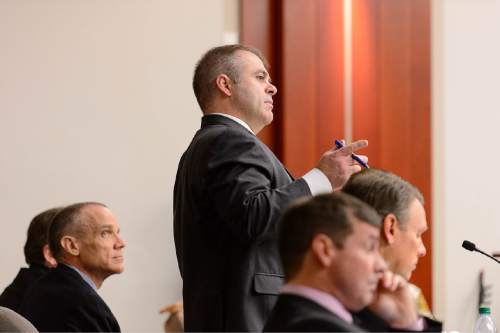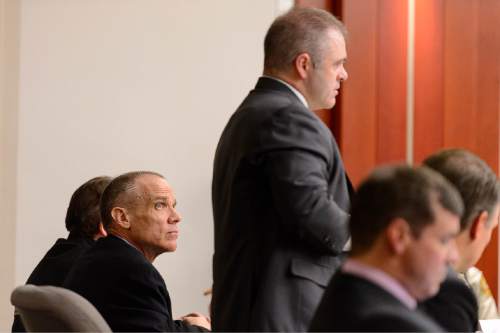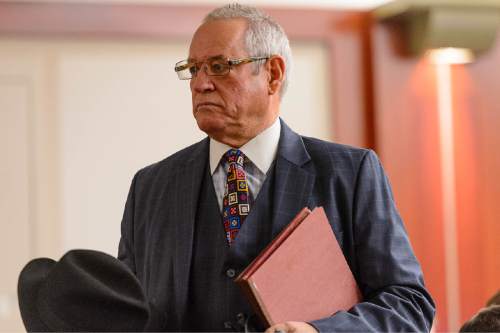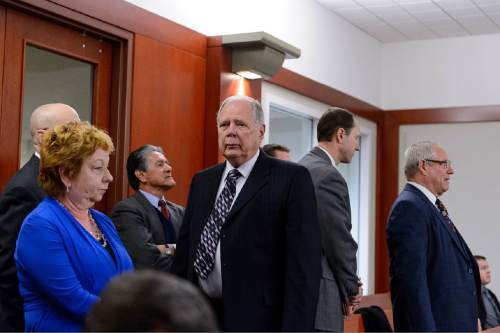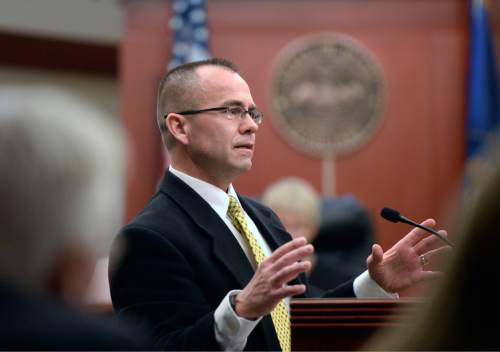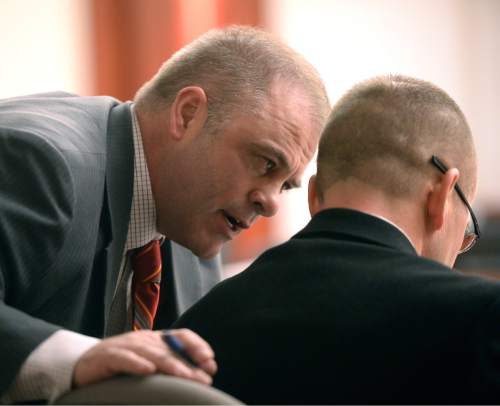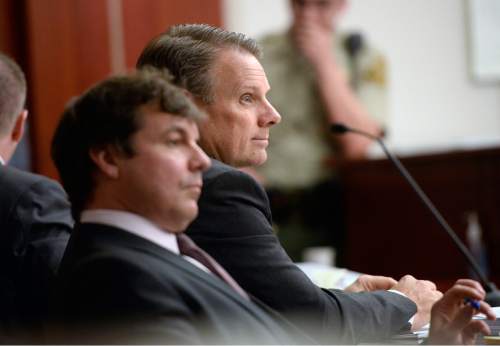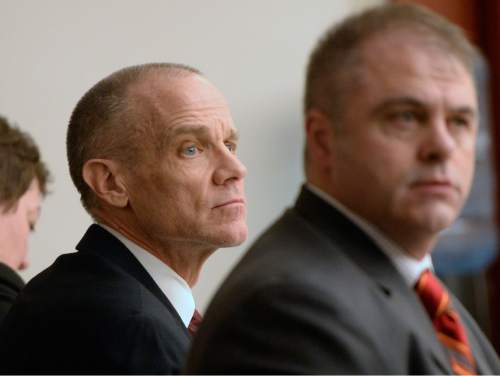This is an archived article that was published on sltrib.com in 2015, and information in the article may be outdated. It is provided only for personal research purposes and may not be reprinted.
In the middle of a fraud and money-laundering trial, the brother of Marc Sessions Jenson pleaded no contest to reduced felony charges in connection with the failed Mount Holly resort near Beaver.
Stephen Roger Jenson entered the pleas to three third-degree felony counts of communications fraud Wednesday in 3rd District Court, just before testimony was set to begin for a fifth day.
The case has ties to the bribery and corruption scandal that left former Utah Attorneys General Mark Shurtleff and John Swallow charged with multiple felonies.
Each of the communications fraud counts, which were reduced from second-degree felonies, is tied to three Colorado investors who bought charter memberships in the planned luxury development.
By entering the no contest pleas, Jenson, 49, is not admitting guilt, but acknowledges that the state likely has enough evidence to convict him.
In exchange for Stephen Jenson's plea, prosecutors have agreed not to recommend that Jenson serve time in prison or on probation — if he pays $275,000 in restitution by his March 30 sentencing date before 3rd District Judge Elizabeth Hruby-Mills.
The amount is far less than roughly $2.3 million in combined losses incurred by the three Mount Holly investors.
"It's not a perfect deal," said Deputy Utah County Attorney Tim Taylor, who is prosecuting the case.
The plea agreement includes a rollback of the plea date to 2013, reducing the time Jenson must wait to seek an expungement of his criminal record to just two years.
As part of the plea deal, one second-degree felony count of communications fraud and 10 counts of second-degree felony money laundering were dismissed against Stephen Jenson.
His brother and co-defendant. Marc Sessions Jenson, has pleaded not guilty to eight felony counts and has not discussed a plea agreement with prosecutors, his attorney Marcus Mumford said. If he is convicted of the charges, Marc Jenson faces up to 15 years in prison on each count.
Stephen Jenson had declined an earlier offer from prosecutors to resolve the case because he lacked the funds to pay any restitution, his attorney Edward Stone said Wednesday.
"Steve believes he can make restitution happen now," Stone said.
The resolution decision is also tied, in part, to the challenges presented in any case with more than one defendant, which leaves jurors in the position of having to decide how to assign responsibility to each defendant separately, Stone said.
"It's incredibly hard to obtain a split verdict in criminal cases with co-defendants," Stone said, before trial testimony resumed Wednesday in connection with 54-year-old Marc Jenson,
Hruby-Mills told jurors only that Stephen Jenson's portion of the case "had been resolved, so he's no longer here."
Stephen Jenson had been expected to testify on his own behalf. The plea agreement does not require Jenson to testify for the state, according to Taylor.
Mumford said the plea should have little impact on Marc Jenson's case, but said he isn't sure if he will call Stephen Jenson as a witness. Marc Jenson understands that his brother made a "calculated decision" to resolve the case and reclaim his life, Mumford said.
Mumford also said he sees the plea as part of an ongoing "shakedown" of Marc Jenson. The term has been used frequently in connection with the case, which Mumford contends is political payback for Marc Jenson's refusal to bend to a financial "shakedown" orchestrated against him by Shurtleff and Swallow.
In 2013, Marc Jenson claimed the former Utah top cops had squeezed him for cash and favors.
"We see [the plea] as an effort by the state to clear the decks and focus this case on Marc Jenson," Mumford said.
Prosecutors contend that the Jensons — who sought to transform the defunct Elk Meadows ski area — failed to disclose required information to investors, including that they were near bankruptcy, had been sued over the project and that Marc Jenson had past convictions for securities fraud and tax evasion.
Defense attorneys maintain the $3.5 billion Mount Holly project was a legitimate enterprise that fell apart when a New York-based hedge fund, which had backed the project, cut its funding.
Prosecutors rested their case Wednesday afternoon. The defense is to begin mounting its case Thursday morning, including Mumford giving an opening statement.


